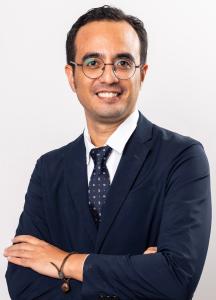Discussion
Details
Pancasila Economics is an economic framework rooted in the ideology of Pancasila, the five foundational principles that guide the state and society of Indonesia. These principles shape the political, social, and economic systems, ensuring that economic policies align with moral values, social justice, and human dignity. The principles of Pancasila Economics provide a vision for a just, inclusive, and sustainable economic system that balances individual prosperity with the collective welfare of all citizens.
The five principles of Pancasila Economics, each of which corresponds to one of the five pillars of Pancasila: Belief in the One and Only God, Just and Civilized Humanity, The Unity of Indonesia, Democracy Guided by the Inner Wisdom in the Unanimity Arising Out of Deliberations Amongst Representatives, and Social Justice for All the People of Indonesia.
1. Ethical Economic Practices: Pancasila Economics stresses the integration of ethical and moral values in economic decision-making, ensuring that businesses and individuals operate with integrity, transparency, and respect for human rights.
2. Inclusivity and Social Justice: Economic policies should promote inclusivity by ensuring that all groups, especially the disadvantaged and marginalized, benefit from economic development.
3. Role of the State: The state has an active role in regulating the economy to ensure equitable growth, fair distribution of wealth, and social welfare.
4. Democratic Participation: Economic decisions should be made democratically, with active involvement from all segments of society.
5. Regional and National Unity: Economic development should ensure that all regions of Indonesia share in the benefits of progress, thus promoting national unity and cohesion.
Chief of the Formulation of Pancasila Economics Principles:
Dr. Ir. Arif Budimanta – Staff to the President of Economic Affairs 2019-2024
Formulator of Pancasila Economic Principles:
1. Prof. Markus Marktanner – Professor of Economics at the Kennesaw State University
2. Ishak Saing, S.E., MBA. – Senior Advisor at the Executive Office of The President Republic of Indonesia 2019-2024
3. Dr. Handi Risza Idris, M. Ec., – Economics at the Universitas Paramadina
4. Dr. Fadhil Hasan – Economist and Founder of the Institute for Development of Economics and Finance (INDEF)
5. Dr. Revrisond Baswir – Economics at the Gadjah Mada University
6. Wijayanto Samirin, MPP – Staff to the Vice President of the Republic of Indonesia for Economics and Finance 2015-2019
7. Prof. Dr. H. Edy Suandi Hamid, M.Ec. – Professor of Indonesian Economics at the Universitas Islam Indonesia and Rector of Widya Mataram University (UWM) Yogyakarta
8. Prof. Ahmad Erani Yustika, S.E., M.Sc., Ph.D – Professor of Economics at the Brawijaya University (tbc)
Agenda
1st December 2024
19:00 – 21:00 Welcome Dinner
- Welcome Address to participants
- Introduction to the event concept
- Overview of the FGD’s goals
By: 1. Prof. Didik J. Rachbini (Rector Paramadina University)
2. Dr. Denis Suarsana (Director KAS Indonesia & Timor Leste)
2nd December 2024
08:30 – 10:00 Introduction to the philosophy of Pancasila
By: Dr. Agus Wahyudi (Head of the Pancasila Study Center, Gadjah Mada University)
10:15 – 12:00 A closer look at the historical development of the principles of the social market economy (how Germany decided to be a social market economy?)
By: Prof. Markus Marktanner
13:30 – 15:00 Discussion Round 1 - Principles of Economic Pancasila (Principle 1 – 3)
- What do the principles mean in terms of Pancasila Economy?
- How can the principles be implemented in the Indonesian economy?
- Roles of government, businesses, and citizens
- Exchange of best practices
Moderator: Chief of the Formulator
15:15 – 16:30 Discussion Round 2 - Principles of Economic Pancasila (Principle 4 – 5)
- What do the principles mean in terms of Pancasila Economy?
- How can the principles be implemented in the Indonesian economy?
- Roles of government, businesses, and citizens
- Exchange of experiences and best practices
Moderator: Chief of the Formulator
16:30 – 18:30 Conclusion of FGD
By: Paramadina University




